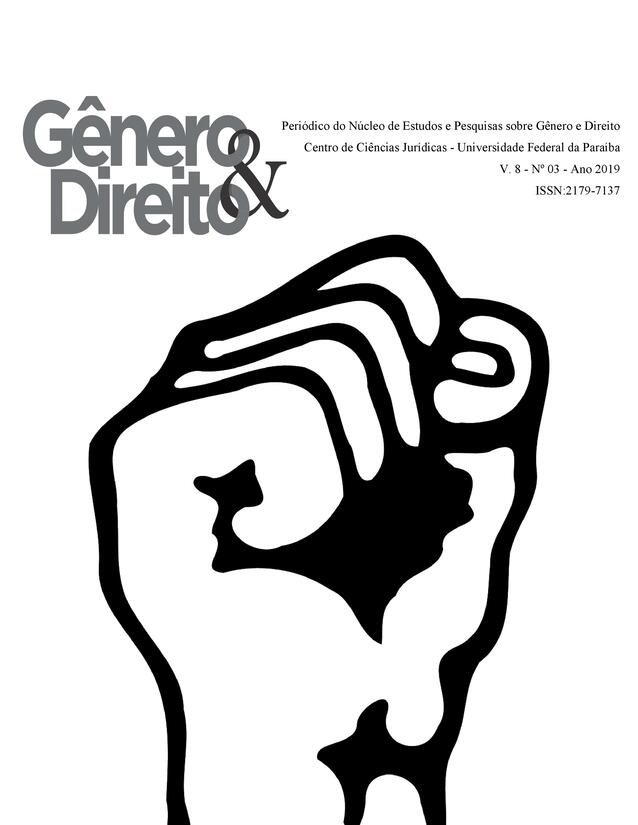THE ROLE OF ENFORCING TRANSPARENCY, COMPETITION AND OBJECTIVE CRITERIA IN DECISION MAKING IN SUPPORT OF THE WEAK PARTY OF GOVERNMENT CONTRACTS
DOI:
https://doi.org/10.22478/ufpb.2179-7137.2019v8n3.47765Palavras-chave:
Government Contracts, Weakness, Principle of Transparency, Principle of Competition, and Principle of Objective Criteria in Decision Making.Resumo
The special features of government contracts, such as the accession of these transactions and the prioritization of public interest over private interests, create a situation that undermines the principle of equality of the parties and their free will and weakens the private side of these contracts. The weaknesses on the private side of the contract are not always in the public interest, and exacerbating this situation can lead to a weakening of the private sector and ultimately to the general economy of countries. Therefore, lawyers and economists have come up with ways to protect it from the weak side of government contracts. The fruit of weak support in government transactions is to balance the benefits of executing and executing these contracts and thereby achieve public goals while strengthening and safeguarding the interests of the private sector. One of the most effective ways of supporting the weak side is to create a framework that compensates for non-compliance with the principle of equity in government transactions and provides grounds for fair private sector growth and development. The most important of these contexts are the implementation of the principles of transparency, competition and objective criteria in decision making. In this article, while outlining these principles in relation to government contracts, we will study the role of adherence to each of these principles in protecting the weak side in government contracts.Downloads
Referências
Emami, Mohammad and Ostwar Sangari, Kourosh, “Administrative Law”, Volume 2, Tehran: Mizan, 2012.
Panahi, Ali; Bandari, Leila, “The Economic Dimensions of Government Bidding and the Characteristics of the Process Governing Them (World Experience)”, Parliament and Research Year 10, No. 39, 2003, p. 37.
Hosseini, Seyyed Hossein, Ahmadi, Zahra, “Criminal Policy Implementation of General Policies” Article Forty-Four (44) of the Constitution, Encyclopedia of Economic Law, No. 21, Spring and Summer 2014, pp. 48-49.
Hosseini, Ismail, “Principles Governing Government Contracts”, Fifth Edition, Tehran: Behnam Publications, 2015, p. 263.
Habibi, Yadollah, “Law dominated on Government Transactions”, Second Edition, Tehran: Majd, 2009, p. 258.
Sadeghian, Hamid Reza, “Comparative Study of the Legal System of Government Transactions between Iran and England”, MSc Public Law, Faculty of Law, Tarbiat Modares University, 2015.
Ghorbani, Adel, Sediq Mohammadi, Mir Farhad, “Strategies for Fighting Economic Corruption in Iran with Emphasis on Successful Countries' Experiences”, Tehran: Economics Research Institute Publications, 2008.
Mohseni, Farid, “Preventing Corruption with Emphasis on Information Technology, Judicial Law Views”, No. 61 Spring 2013.
Matni Nezhad, Sadegh, “Methods and grounds for collusion in government transactions, Law Journal of Justice”, Winter 2007, No. 61, (62-47)
Mullaei, Ayat, “Administrative Contracts: A Comparative Study of the Platforms, Principles, Nature, and Principles, First Edition”, Tehran, Maid Publishing, 2014, pp. 407-424.
Bliss, Christopher and Rafael Di Tella, “Does Competition Kill Corruption?” Journal of Political Economy, 105:5, 1997, pp. 1001-1023.
Schooner, S.L., Desiderata: Objectives for a System of Government Contract Law, Procurement Law Review,2002, p.103
Trybus, Martin, “Improving the Efficiency of Public Procurement System in the Context of the European Union Enlargement Process, Public Contract Law Journal, vol. 35. No. 3, (PP. 409-425), (Spring 2006), P. 410. In: Hein Online (http:/heinonline.org).(visited: 2/1/2017)
United Nations Office on Drugs and Crime Vienna, Guidebook on anti-corruption in public procurement and the management of public finances,Good practices in ensuring compliance with article 9 of the United Nations Convention against Corruption, UNITED NATIONS, New York, 2013.
UNCITRAL Model Law on Public Procurement, UNITED NATIONS COMMISSION ON INTERNATIONAL TRADE LAW, UNITED NATIONS New York, 2014, (United Nations document, A/66/17, annex I), As adopted by the United Nations Commission on International Trade Law on 1 July 2011

